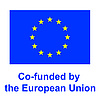GreenChips-EDU: Nurturing the Future of Microelectronics for a Sustainable Tomorrow

The focus of the degree programs is on the development and production of sustainable and energy-efficient microchips. The Unite! partners involved in the project are TU Graz, PoliTo, TUDa, UPC, Grenoble INP-UGA and ULisboa.
The European Chips Act is intended to raise the European microchip industry to a new level, with several billion euros are being invested in the construction of new semiconductor production facilities in Germany, Poland and Italy, among others. For the operation of these new high-tech facilities, a large number of engineers and technicians are needed, and so far it is unclear where they will come from. The electronics sector already lacks qualified personnel – in Austria alone, 14,000 additional skilled workers are needed, and Europe-wide estimates range from 60,000 to 150,000.
In order to specifically counteract this shortage of skilled workers, seven European universities have joined forces with a further eight partners from industry and research in the “GreenChips-EDU” project. Together they want to accelerate the training of skilled workers in the field of microelectronics. The European Commission is funding the four-year project with 7.15 million euros, and the Austrian Research Promotion Agency is adding another 750,000 euros. “In the past, production costs were the decisive factor for deciding on the location of production facilities in the microelectronics industry,” says project manager Bernd Deutschmann, head of the Institute of Electronics at TU Graz.
“Today, microchips are developed and built where the skilled workers are. With GreenChips-EDU, European universities are joining forces for the first time to develop joint curricula for education in electrical engineering and microelectronics in order to train the necessary specialists in the best possible way.”
Core topics: energy efficiency and sustainability in power electronics
The focus of the university programmes is on the development and production of sustainable and energy-efficient microchips, because power-saving microchips are indispensable to achieve the climate targets in Europe. According to Bernd Deutschmann, a special focus is on the field of power electronics: “This is an area where Europe is an international leader and has great personnel needs for which we want to train young people.” The internationally harmonised university programmes facilitate the cross-border recognition of academic achievements and promote student mobility. “GreenChips-EDU also shows the importance of international university alliances. Graz University of Technology is part of the European University Alliance Unite!, as are several partners in the GreenChips-EDU project. A good network with excellent partners from science and industry is what makes a project like this possible in the first place,” says Andrea Höglinger, Vice Rector for Research at TU Graz.
“Our goal is for 600 students to complete a Bachelor’s or Master’s programme during the four-year project period,” says Bernd Deutschmann. The Bachelor’s and Master’s programmes are to be maintained after the end of the project period. In addition to the degree programmes, GreenChips-EDU is developing further and higher education programmes for industry professionals – ranging from short workshops to microcredentials and MBA programmes.
Theses in cooperation with companies
In addition to universities, an association and a research institute, six companies are also involved in GreenChips-EDU, including Infineon Technologies Austria and Končar from Croatia. The industrial partners are involved, among other things, through teaching assignments and cooperation on Master’s thesis.
Microelectronics is an enormous enabler to achieving the climate targets, thus contributing to decarbonization and digitalization. More than ever a skilled technical workforce is needed to implement these impactful innovations, to reduce carbon emissions and to leverage the enormous potential of energy efficiency. These are highly attractive job opportunities capable to shape a better tomorrow. The new European “GreenChips-EDU” project will be instrumental in developing up-to-date and purpose oriented curricula fit to attract more young people for technology studies. As Infineon Austria, we contribute with our extensive expertise in research, development and manufacturing of energy-saving chips, as well as with our comprehensive educational activities for more than 100,000 young people over the last years. Together with this highly competitive consortium, we will generate enthusiasm for technology, boost education and empower technical specialists for the future. This is a very tangible initiative to strengthen Europe’s talent pipeline in this highly relevant field of microelectronics.”

